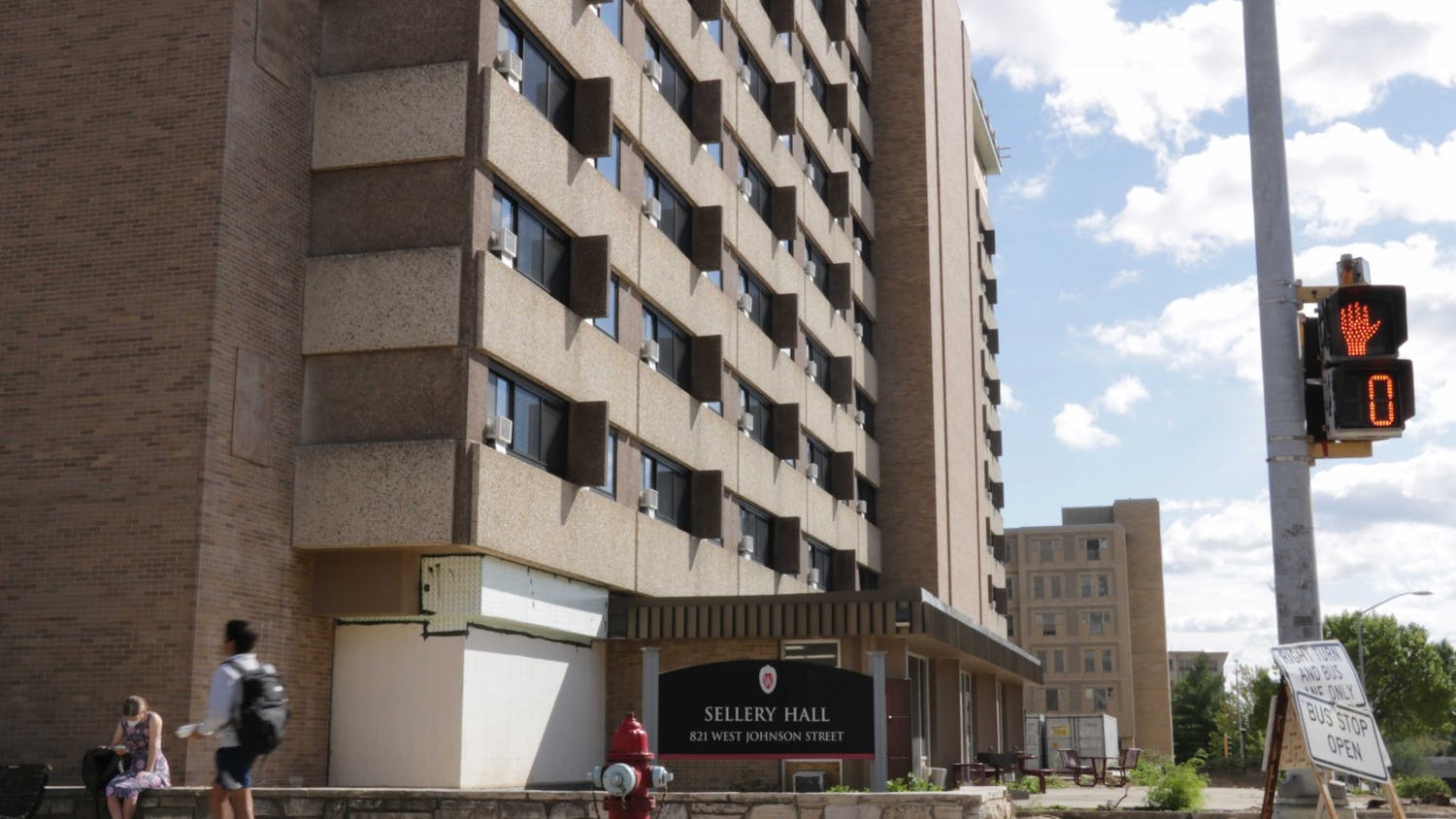Thousands of protestors marched down State Street and gathered in the Capitol rotunda for the Women’s March Sunday to mark the 50th anniversary of Roe v. Wade, the landmark abortion rights decision that was overturned by the Supreme Court in June 2022.
Women’s March is a national organization that has held an annual march since 2017. Initially organized to protest former president Donald Trump’s election, Women’s March continues to advocate for women’s rights and social justice more broadly.
The organization chose Madison for the 2023 flagship march “Bigger Than Roe” because of Wisconsin’s upcoming State Supreme Court election, the outcome of which could determine the future of abortion access in the state. Several sister marches were held across the United States on the same day.
The protest began at Library Mall, where activists began their march to the Capitol. Representatives from Women’s March, the Madison Abortion and Reproductive Rights Coalition for Healthcare (MARRCH), and Mobilize Wisconsin gave speeches inside the Capitol building.
Speakers at the Women’s March called on people to vote in the Wisconsin Supreme Court primary election on Feb. 21 and the general election on April 4.
Women’s March Executive Director Rachel O’Leary Carmona said she hopes the election is a step towards repealing the active 1849 law that bans in-state abortion unless it’s performed to save the pregnant person’s life.
“You and me need to make sure that our chosen leaders share our values and our vision for the future,” O'Leary Carmona said. “Nothing less than our whole democracy is on the line.”
Healthcare providers and other reproductive rights activists also took to the podium, saying the 1849 law puts pregnant people at physical health risk, despite the exceptions. Providers face up to six years in prison or a maximum fine of $10,000 for violating the ban. Hannan Jabril, a self-managed abortion facilitator and MARRCH member, said it’s dangerous to let the law determine when an abortion is necessary to save the pregnant person.
“So much of medicine is nuanced,” Jabril said. “Judgment calls between the provider and the patient and the care team. That's why there is no safe way to restrict abortion access.”
Community organizer and MARRCH representative Amadi Ozier said steps toward a more feminist future include overturning the 1849 ban, reopening Wisconsin abortion clinics, providing free abortion services and allocating part of Wisconsin’s budget surplus to fund out-of-state abortions.
Abortion bans don’t affect everyone equally. Black and Indigenous pregnant people are two to four times more likely to die during pregnancy or childbirth than white people, according to the Centers for Disease Control and Prevention. A Duke University study estimated that a nationwide abortion ban would increase maternal mortality by 21% overall and 33% for Black Americans.
“The battleground for reproductive rights is Black people, trans people, poor people, workers, incarcerated people,” Ozier said. “People without health insurance, people with mental health issues, people who already have children.”
Speakers stressed that reproductive justice encompasses more than just abortion access.
T. Clearwater is an indigenous and reproductive rights activist with Mobilize Wisconsin. They spoke about the increased rates of domestic violence and kidnapping that indigenous women and other marginalized communities face.
“Women are kidnapped due to hypersexualization from being Indigenous and a very colonial racist idea,” Clearwater said. “It's all fairly intertwined to an extremely deep point. I want to make sure that people who are marginalized aren’t erased in these conversations.”
According to Native Women’s Wilderness, over half of Indigenous women in the U.S. experience domestic violence, and Indigenous women are murdered at 10 times the rate of other ethnicities.
Current Wisconsin law does not allow abortions for pregnancies resulting from rape. Jabril said forcing a survivor of rape to carry out a pregnancy violates that person’s body.
“Abortion is a mercy for survivors,” Jabril said. “When you are assaulted, your right to choose what happens to your body is taken away from you. Afterwards, your right to choose is taken away from you again and again because trauma and PTSD force you to relive that moment over and over. When Republican abortion bans supported by Dan Kelly and Jennifer Dorow force pregnancy and birth on a survivor, your right to choose what happens to your body is violated for a third time.”
Normalizing abortion is another step towards reproductive justice, according to activists and organizers at the Women's March.
“Every one of us loves someone who has had an abortion, whether we know it or not,” Jabril said.
Activist Rachel Fields, a Women’s March participant, held a sign that read, “I don’t regret my abortion.” She said she brought the sign to contradict the perception that pregnant people often regret terminating their pregnancy.
“As women, we are told that abortion is something you should regret,” Fields said. “For me, it was a healthy decision. It enabled me to have my family as it is today. I think that abortion saves lives.”
Although the majority of protestors came in support of the Women’s March, several pro-life advocates stood outside the Capitol building. John Goeke said he stood at the front of the Capitol to advocate for a more pro-life future.
“I want people to know the love of Jesus,” Goeke said. “If people are here wanting the right to kill their own child, they don’t know Jesus.”
The upcoming Wisconsin Supreme Court election is a nonpartisan election, but candidates vary ideologically. Conservative candidates Dan Kelly and Jennifer Dorow have been endorsed by pro-life organizations while liberal candidates Everett Mitchell and Janet Protasiewicz voiced disapproval of the Supreme Court’s decision overturning Roe v. Wade.
After the Feb. 21 primary, the top two candidates will advance to the general election on April 4.






